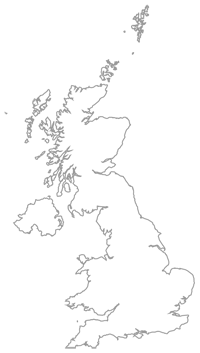Introduction
Hiera is great. It allows us to lift the values out of our Puppet manifests, which creates a healthy separation. Hiera contains the values. Puppet manifests contain the description of what to do with those values.
In a well-managed infrastructure, it should be possible to clone repeating, but subtly different, config patterns by simply adding to the Hiera config. The Puppet manifest is like a blueprint that maps the Hiera config to the machine configuration.
Node definition
This is an abstract concept, so let’s take a look at an example:
node default {
class { 'example' : }
}
The definition
The module is defined without a default:
class example (
$user,
) {
...
}
Command line with –hiera_config
puppet apply -dvt ./manifests/site.pp --modulepath=./modules/ --hiera_config=./hieradata/hiera.yaml
Hiera setup
hiera.yaml tells Puppet where and how to find values:
#
# hiera.yaml
# referenced by `puppet apply` and `puppet agent` calls
# during masterless/mastered puppet run
#
---
version: 5
hierarchy:
- name: "Per-node data"
path: "nodes/%{::hostname}.yaml"
- name: "Common data"
path: "common.yaml"
defaults:
data_hash: yaml_data
datadir: ./
In common.yaml we define our first value for the example class:
example::user: "azula"
This means that the value azula is going to be passed to the $user variable in the example class.
Output
The debugging output now features a lot of information from Hiera:
...
Debug: Automatically imported example from example into production
Debug: Automatic Parameter Lookup of 'example::user'
Searching for "lookup_options"
Global Data Provider (hiera configuration version 5)
Using configuration "/home/alexs/devops-workstream/puppet/tutorial/05-class-attribute-values-from-hiera/hieradata/hiera.yaml"
Merge strategy hash
Hierarchy entry "Per-node data"
Path "/home/alexs/devops-workstream/puppet/tutorial/05-class-attribute-values-from-hiera/hieradata/nodes/remprov.yaml"
Original path: "nodes/%{::hostname}.yaml"
Path not found
Hierarchy entry "Common data"
Path "/home/alexs/devops-workstream/puppet/tutorial/05-class-attribute-values-from-hiera/hieradata/common.yaml"
Original path: "common.yaml"
No such key: "lookup_options"
Module data provider for module "example" not found
Searching for "example::user"
Global Data Provider (hiera configuration version 5)
Using configuration "/home/alexs/devops-workstream/puppet/tutorial/05-class-attribute-values-from-hiera/hieradata/hiera.yaml"
Hierarchy entry "Per-node data"
Path "/home/alexs/devops-workstream/puppet/tutorial/05-class-attribute-values-from-hiera/hieradata/nodes/remprov.yaml"
Original path: "nodes/%{::hostname}.yaml"
Path not found
Hierarchy entry "Common data"
Path "/home/alexs/devops-workstream/puppet/tutorial/05-class-attribute-values-from-hiera/hieradata/common.yaml"
Original path: "common.yaml"
Found key: "example::user" value: "azula"
...
and crucially the correct debug() message using the class variable sourced from Hiera:
Debug: Scope(Class[Example]): The value of the variable $user is azula
Open-source
All the code for these tutorials is available as part of DevOps-Workstream.
The segments from this tutorial specifically make up puppet/tutorial/05-class-attribute-values-from-hiera here on GitHub.
If you’d like to see all the previous and future installments of this tutorial, they’re available under the puppet tag.
Get your team coding
If you'd like to help your Operations team move to infrastructure-as-code, please get in touch to find out how Lightenna Consulting could accelerate your Cloud journey.

Leave a comment